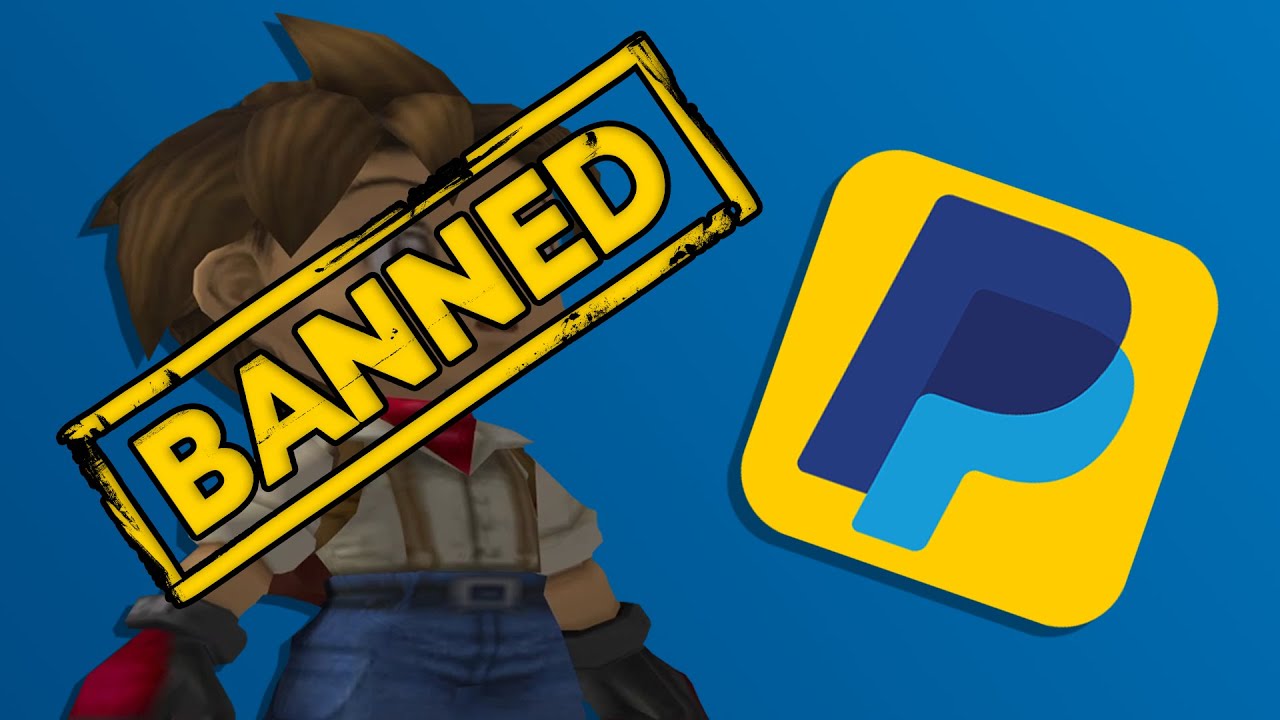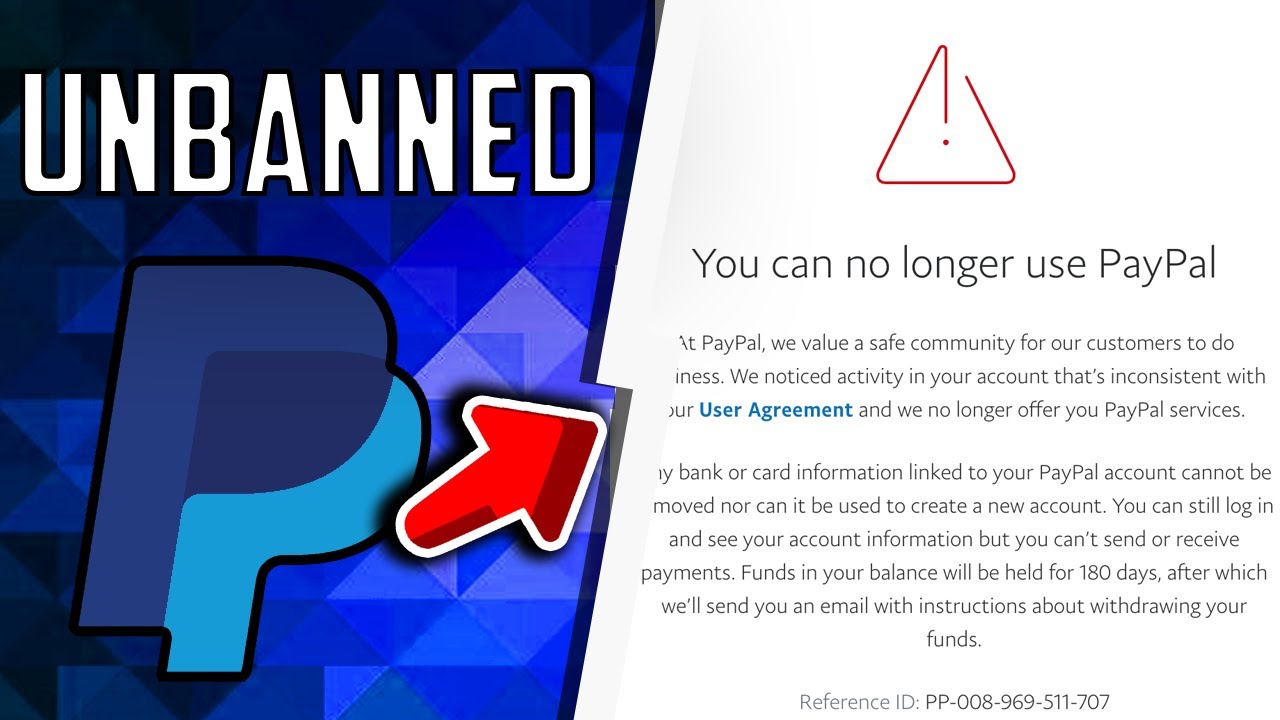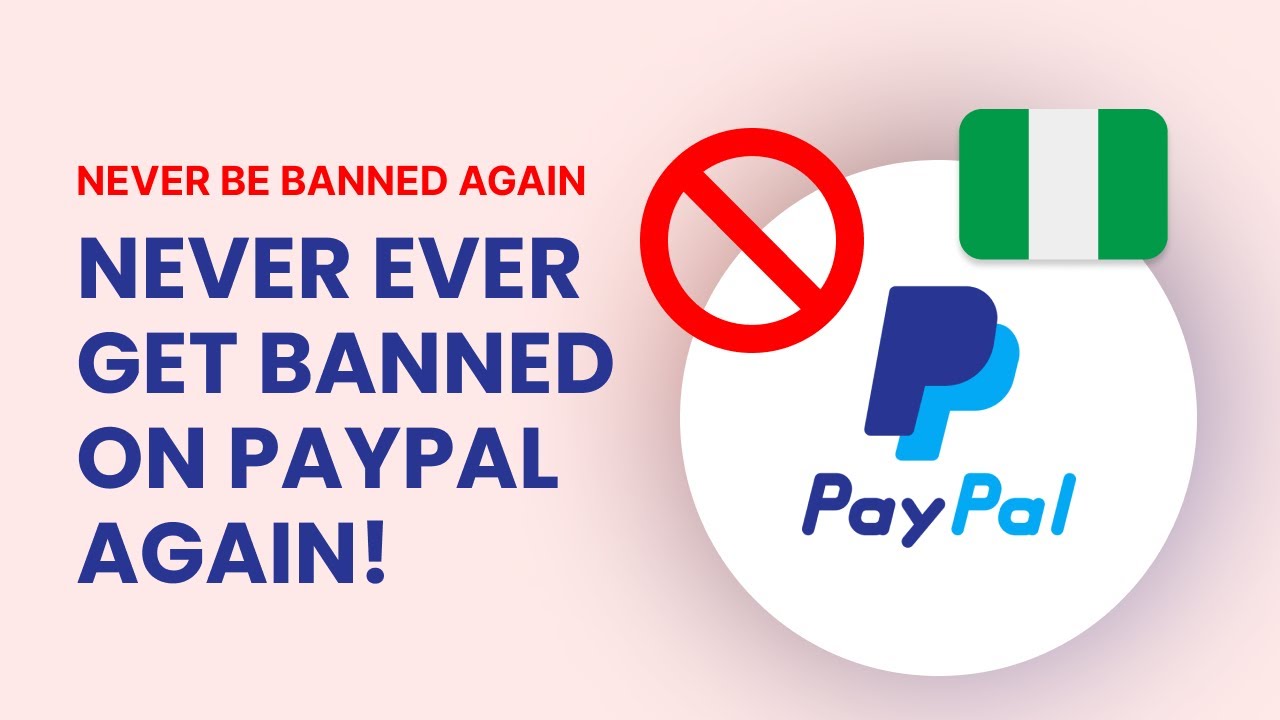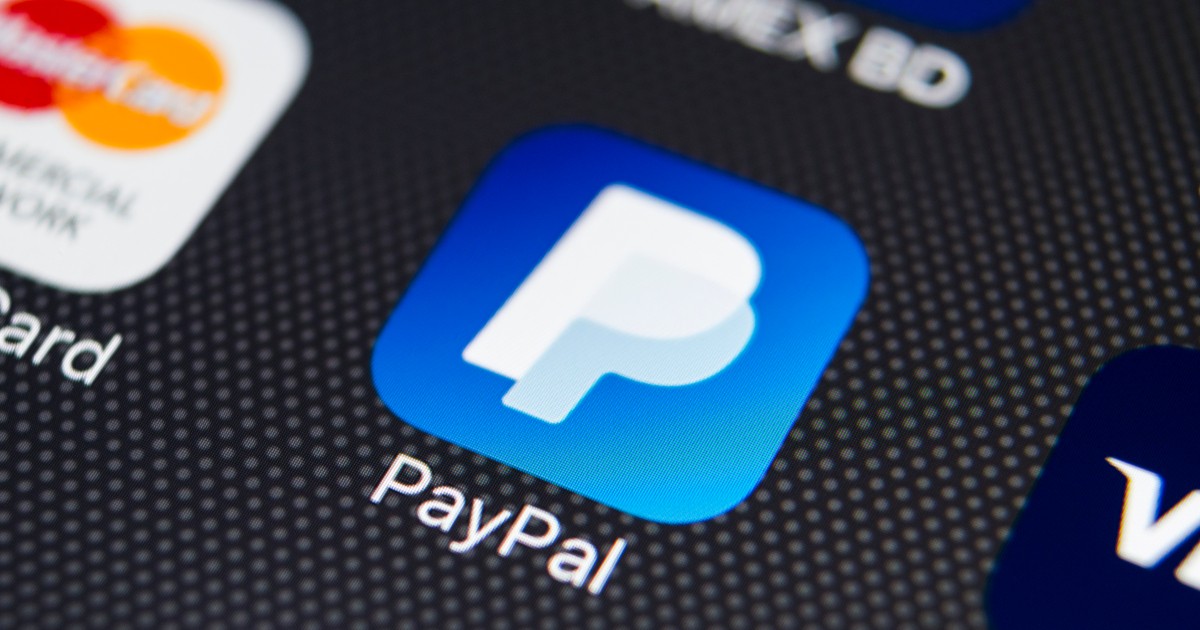PayPal, a leading online payment system, has become an integral part of the digital economy, facilitating secure and convenient financial transactions. However, there are instances where users find themselves facing the unfortunate consequence of being banned by PayPal. This article explores the reasons behind these bans, the potential impact they can have on individuals and businesses, and the steps one can take to address and overcome such situations.
Understanding PayPal Bans
PayPal bans refer to the suspension or termination of a user's account by the company. When a ban is imposed, the user loses access to their funds, is unable to make transactions, and may encounter challenges in receiving payments. PayPal typically takes these actions when it detects activities that violate its terms of service or when it suspects fraudulent or suspicious behavior. While PayPal's aim is to maintain a secure and reliable platform, there have been cases of users being banned erroneously or due to misunderstandings.
Reasons For PayPal Bans

How I Got Banned by PayPal
PayPal, as a trusted online payment system, imposes bans on user accounts in certain situations to maintain a secure and reliable platform. Understanding the reasons behind these bans is important to ensure compliance with PayPal's policies and avoid potential disruptions to financial transactions. Here are some common reasons for PayPal bans:
Policy Violations
One of the primary reasons for PayPal bans is the violation of its policies. Users must adhere to PayPal's terms of service, which include guidelines on prohibited activities, restricted transactions, and compliance with legal obligations. Engaging in activities such as illegal transactions, selling counterfeit goods, or participating in high-risk businesses can lead to a ban.
Suspicious Transactions And Potential Fraud
PayPal employs advanced algorithms and fraud detection systems to identify suspicious transactions and potentially fraudulent activities. Unusual patterns, large transactions, or a high number of chargebacks can trigger a ban as PayPal aims to protect its users from financial harm and maintain the integrity of its platform.
Disputes And Chargebacks
Repeated disputes and chargebacks from customers can raise concerns about a user's reliability and trustworthiness. If PayPal perceives a high risk of future disputes or chargebacks, it may resort to a ban as a preventive measure to protect both parties involved in the transaction.
Violation Of Acceptable Use Policy
PayPal has an Acceptable Use Policy that outlines acceptable behaviors and activities on its platform. Violating this policy, such as engaging in restricted businesses or using PayPal for illegal purposes, can result in a ban. Users must familiarize themselves with this policy and ensure compliance to avoid penalties.
Security Breaches And Account Compromise
If a user's PayPal account is compromised or involved in a security breach, PayPal may temporarily suspend or permanently ban the account to prevent unauthorized access and protect user information. These actions are taken to ensure the security and privacy of both the account holder and other PayPal users.
It is important for PayPal users to understand and adhere to the platform's policies and guidelines to avoid potential bans. By maintaining compliance and conducting transactions within acceptable boundaries, users can enjoy the benefits of PayPal while minimizing the risk of being banned.
Impact Of PayPal Bans
When a user is banned by PayPal, it can have significant consequences for both individuals and businesses. The impact of a PayPal ban extends beyond the immediate loss of account access. Here are some key areas where bans can have an effect:
Financial Loss
Being banned by PayPal can result in financial loss for users. They may lose access to their funds in the banned account, and retrieving those funds can be a challenging process. This loss can be particularly detrimental to individuals and businesses relying on PayPal for their day-to-day transactions and financial stability.
Disruption To Business Operations
For businesses, a PayPal ban can cause significant disruptions to their operations. Many e-commerce platforms and online marketplaces integrate PayPal as a primary payment method. A ban can result in lost sales and hinder the ability to receive payments from customers, impacting cash flow and potentially damaging the business's reputation.
Limited Payment Options
Being banned by PayPal restricts users' access to one of the most widely used and recognized online payment systems. This limitation can make it challenging to find alternative payment processors with similar reach and popularity. Users may face difficulties in setting up new payment accounts or convincing customers to use alternative payment methods.
Trust And Credibility
A PayPal ban can raise questions about the trustworthiness and credibility of individuals or businesses. Other potential partners, customers, or financial institutions may view the ban as a red flag, affecting future opportunities. Rebuilding trust and restoring credibility can be a time-consuming and challenging process after experiencing a PayPal ban.
Reputational Damage
In addition to trust and credibility, a PayPal ban can also lead to reputational damage. Negative experiences or accounts of being banned by PayPal can spread through word of mouth or online reviews, potentially impacting the perception of others regarding the individual or businessinvolved. Rebuilding a positive reputation in the digital marketplace may require significant effort and time.
It is important for users to understand the potential impact of a PayPal ban and take proactive measures to address the situation effectively. Exploring alternative payment options, communicating transparently with customers and partners, and demonstrating a commitment to ethical practices can help mitigate the consequences and work towards rebuilding financial stability and reputation.
Steps To Address A PayPal Ban

*NEW* How to Fix Permanent limited PayPal Account [How to get Unbanned From PayPal 2022]
Being banned by PayPal can be a challenging situation, but there are steps you can take to address and potentially resolve the issue. Here are some recommended steps to follow:
Review PayPal Policies
Thoroughly review PayPal's policies and terms of service to understand the specific reason for the ban. Identify any violations or areas where your account may have deviated from the guidelines. This understanding will help you address the root cause of the ban and avoid similar issues in the future.
Contact PayPal Support
Reach out to PayPal's customer support to seek clarification and assistance. Contact their support team through the appropriate channels, such as email or phone. Explain your situation and provide any necessary documentation or evidence that can support your case. Be polite, concise, and provide all relevant details to help them better understand your situation.
Seek Professional Assistance
If your PayPal ban involves complex legal matters or you encounter difficulties in resolving the issue on your own, consider seeking professional assistance. Consult with an attorney specializing in financial law or online transactions. They can provide valuable guidance, help you understand your rights, and assist in navigating the process of addressing the ban.
Explore Alternative Payment Processors
While your PayPal account is banned, explore alternative payment processors to ensure the continuity of your online transactions. Research and identify reputable platforms that align with your needs and comply with regulations in your area. Set up accounts with these alternative processors and integrate them into your online business or transactions.
Rebuild Trust And Compliance
Take proactive steps to rebuild trust and demonstrate compliance with PayPal's policies. If you manage to resolve the ban, make sure to adhere strictly to PayPal's guidelines moving forward. Communicate transparently with customers, partners, or stakeholders about the situation, assuring them of your commitment to maintaining ethical practices and resolving any concerns that may arise.
Remember that each situation is unique, and the outcome of addressing a PayPal ban may vary. Patience, persistence, and cooperation are key during this process. By following these steps and actively working towards a resolution, you increase the chances of resolving the ban and regaining access to PayPal's services.
Alternative Solutions To Resolve PayPal Bans
When facing a PayPal ban, there are alternative solutions you can explore to address the situation and continue conducting online transactions. While these solutions may not guarantee the immediate resolution of the ban, they can help mitigate the impact and provide alternatives for financial transactions. Here are some alternative solutions to consider:
- Alternative Payment Processors -Look into other reputable payment processors available in your region. Research and identify platforms that align with your needs and comply with regulations. Set up accounts with these alternative processors to ensure the continuity of your online transactions.
- Direct Bank Transfers -Consider using direct bank transfers as a payment method. Encourage your customers or clients to make payments directly into your bank account, bypassing PayPal altogether. Provide them with your bank account details and instructions for making the transfers.
- Cryptocurrency Payments -Explore accepting cryptocurrency payments as an alternative to PayPal. Cryptocurrencies like Bitcoin, Ethereum, or Litecoin offer decentralized and secure payment options. Research and implement cryptocurrency payment gateways that integrate with your online business or transactions.
- Offline Payments -If feasible, offer offline payment options to customers or clients. This can include cash on delivery (COD), bank transfers, or payments through offline payment processors. Provide clear instructions and communicate the available offline payment methods to your customers.
- Payment Gateways Integration -Integrate other popular payment gateways into your website or e-commerce platform. Services like Stripe, Square, or Braintree can serve as alternatives to PayPal and provide seamless payment processing for your customers.
- Custom Payment Solutions -Explore the possibility of developing custom payment solutions tailored to your specific needs. This can involve building your own payment gateway or integrating with third-party payment systems that cater to your niche market.
Remember to consider the specific requirements of your business and your target audience when exploring these alternative solutions. It may also be beneficial to communicate with your customers, informing them of the available alternatives and providing clear instructions for using these alternative payment methods.
How Can You Avoid Getting Banned From PayPal?

How To Avoid Getting Your Paypal Banned - 7 Quick Tips Prevent Your Paypal Account From Being Block
To avoid getting banned from PayPal, it's essential to adhere to their policies and guidelines. Here are some best practices to help you maintain compliance and minimize the risk of being banned:
- Read and Understand PayPal's Policies -Familiarize yourself with PayPal's terms of service, acceptable use policy, and any other guidelines they provide. Stay up to date with any policy changes or updates. This will ensure that you are aware of the rules and can align your activities accordingly.
- Use Verified and Genuine Information -Provide accurate and up-to-date information when creating your PayPal account. This includes your personal or business details, contact information, and financial information. Using false or misleading information can lead to account suspension or termination.
- Engage in Legitimate Business Activities -Conduct legitimate and lawful business activities when using PayPal. Avoid engaging in activities that violate PayPal's policies or involve illegal or prohibited goods/services. Ensure that your business is compliant with applicable laws and regulations.
- Maintain Good Communication with Customers -Communicate clearly and promptly with your customers regarding transactions, refunds, and any issues that may arise. Responding to customer inquiries and addressing their concerns in a timely and satisfactory manner can help prevent disputes and chargebacks.
- Monitor and Prevent Fraudulent Activities -Keep a close eye on your PayPal account for any suspicious transactions or activities. Regularly review your account statements and transaction history. Implement additional security measures, such as strong passwords, two-factor authentication, and fraud detection systems, to protect your account from unauthorized access.
- Resolve Disputes Amicably -If a dispute or issue arises with a customer, try to resolve it amicably and promptly. Work towards finding a mutually satisfactory solution before it escalates to a PayPal dispute or chargeback. Effective communication and timely resolution can help prevent negative impacts on your account.
- Maintain a Good Transaction History -Strive to maintain a positive transaction history on PayPal. A history of reliable and successful transactions can build trust and credibility, reducing the likelihood of account suspensions or bans.
- Stay Informed -Keep yourself informed about PayPal's updates, policies, and best practices. Regularly visit PayPal's official website, read their blogs or newsletters, and participate in relevant forums or communities to stay up to date with the latest information.
By following these best practices and conducting your online transactions in a transparent and compliant manner, you can reduce the risk of being banned from PayPal and maintain a positive relationship with the platform.
People Also Ask
Can I Recover The Funds In My Banned PayPal Account?
Recovering funds from a banned PayPal account can be challenging. It is advisable to contact PayPal's customer support and provide any necessary documentation to resolve the issue.
Is It Possible To Get Unbanned By PayPal?
It is possible to get unbanned by PayPal. By reviewing policies, contacting customer support, providing relevant information, and demonstrating a commitment to compliance, you can increase your chances of resolving the ban.
Can I Use Alternative Payment Processors If I Am Banned By PayPal?
If you are banned by PayPal, you can explore alternative payment processors to continue your online transactions. Research reputable platforms that align with your needs and comply with regulations.
How Does Being Banned By PayPal Affect My Online Business?
Being banned by PayPal can have significant consequences for your online business, including financial loss, disruption of payment processing, limited payment options, and potential damage to trust and credibility.
Conclusion
Banned by PayPal - these words can have a profound impact on individuals and businesses relying on the platform for their financial transactions. While PayPal aims to maintain a secure and reliable ecosystem, bans can occur due to policy violations, suspicious activities, disputes, security breaches, or violations of the Acceptable Use Policy.
The consequences of a ban can range from financial loss and business disruption to limited payment options and damage to trust and credibility. However, understanding the reasons behind bans, seeking support, complying with policies, and exploring alternative options can help individuals and businesses mitigate the challenges posed by a PayPal ban. By taking proactive steps and rebuilding trust, one can navigate the situation and regain financial stability and reputation in the digital marketplace.

